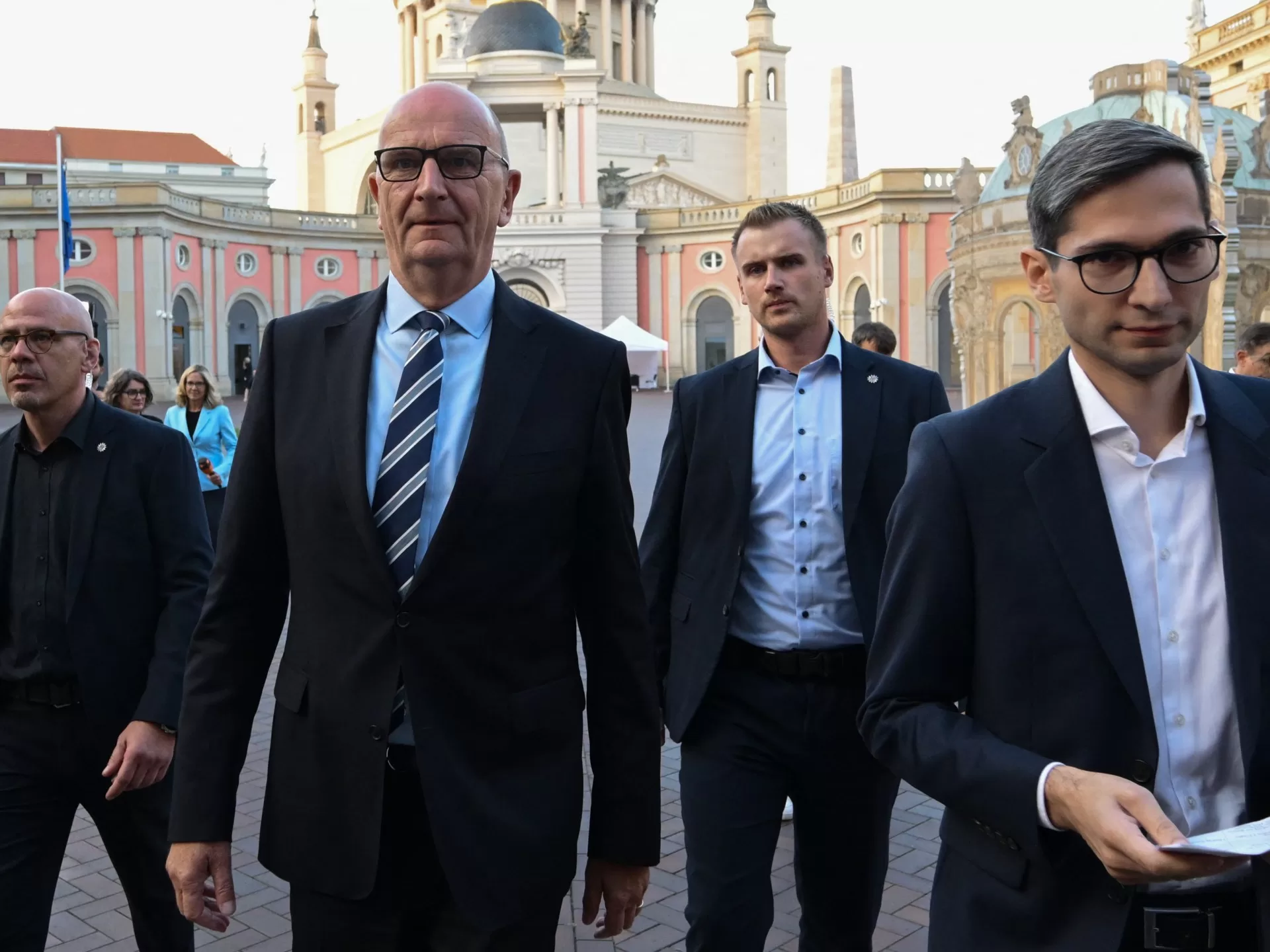Scholz’s centre-left Social Democrats likely to win 31 percent of the vote in Brandenburg, a slight lead over AfD at 29 percent, projections show.
German Chancellor Olaf Scholz’s Social Democratic Party (SPD) has narrowly beaten the far-right Alternative for Germany (AfD) in a local election in the east German state of Brandenburg, initial projections show.
Scholz’s centre-left SPD won around 31 percent against the anti-immigration and anti-Islam AfD, which scored about 29 percent, according to the projections by public broadcasters on Sunday.
The result in the formerly communist east offers a rare moment of respite for Scholz’s embattled coalition government, which has sunk in opinion polls a year ahead of national elections.
It is unlikely, however, to give him or his party a major boost given that popular, incumbent SPD premier Hubert Dietmar Woidke has distanced himself from Scholz during the campaign and criticised the federal government’s policies.
The election in Brandenburg was closely watched because Scholz’s SPD has ruled there ever since Germany’s 1990 reunification. The chancellor’s own electoral district is in the state capital Potsdam, outside Berlin.
The AfD, which rails against asylum seekers, multiculturalism, Islam and Scholz’s government, had hoped to replicate its recent electoral success in the east.
Three weeks ago, the far-right party stunned the political establishment by winning its first-ever parliamentary vote – in the eastern state of Thuringia – and coming a close second in neighbouring Saxony.
Despite its ballot box success, the AfD is unlikely to take power in any state since all other mainstream parties have so far ruled out entering into a governing alliance with the party.
SPD’s Woidke, in office for more than a decade, had also thrown down a challenge to voters by telling them he would quit if the AfD won.
The AfD, which had vowed “to send Woidke into retirement”, nonetheless hailed its strong showing. Party co-leader Tino Chrupalla said it had “taken gold once and silver twice” in three elections in the east this month.
The AfD’s populist rhetoric has heaped political pressure on Scholz and his governing allies, the Greens and the liberal Free Democrats. Both parties scored in the low single digits in Sunday’s state election.
